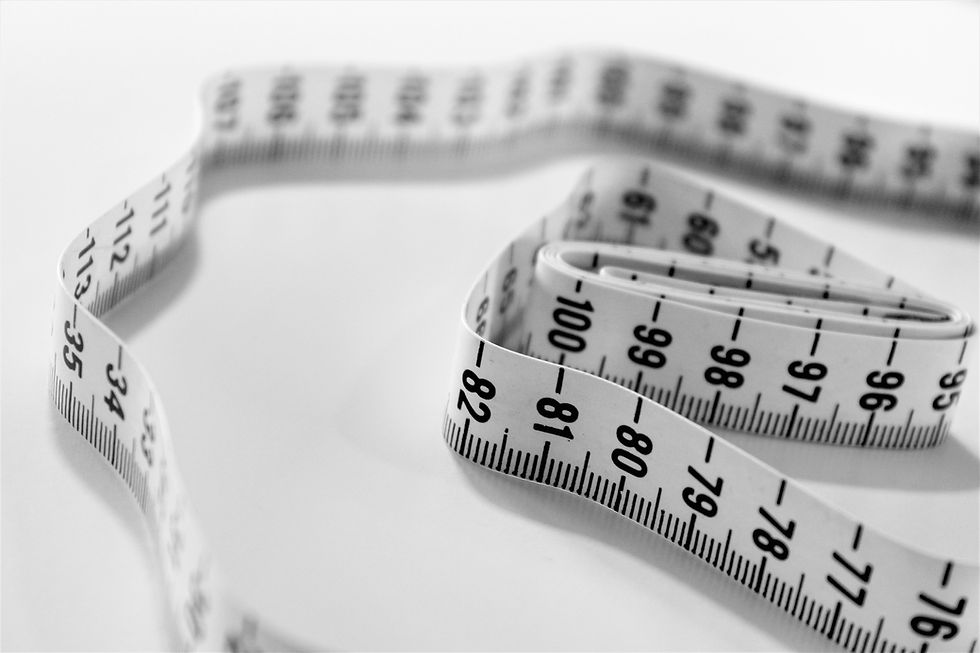3 Reasons Why We Need to Look Beyond Body Positivity and Fight Against Anti-Fat Bias
- Sarah Kimball
- Feb 12, 2024
- 4 min read
When you think of the term “body positivity” what do you think of? Women of all shapes and sizes wearing bikinis? Moms talking about how love their rolls and stretch marks? Perhaps you think of inspirational quotes like “love yourself” and “you are beautiful.”
While it’s great to have body representation in the media and great for people to think of themselves as beautiful, we need to look beyond this watered-down version of body positivity that we see in the media today. As a society, we need to go back to the radical roots of body positivity that fight against anti-fat bias.
I am very passionate about the body positivity movement. I grew up learning from the women around me how to hate my body and struggled a lot with disordered eating in college. On my journey to healing, I became fascinated with learning as much as I could about the world of body positivity. I managed the social media account for the body-positive film Straight/Curve and worked closely with the director of the film focusing on themes of media representation for women of all shapes, sizes, colors, abilities, and identities. Currently, I host a body-positive podcast called Ignited by Inner Beauty and I lead a body-positive book club with the Cambridge Women’s Center.
I have read dozens of books about body positivity and listened to hundreds of hours of podcasts from anti-diet dietitians. And I’m going to summarize the three important things I think you need to know so you too can look beyond what you know about the simplicities of body positivity and join me in the true fight for body liberation.

1. Diets don’t work
Many studies over the decades show that diets or intentional weight loss attempts fail about 95% of the time, meaning people gain all the weight back or more within 3-5 years. While we see a lot of short-term success stories,
Fat people are stigmatized and often told to “just lose weight” but prescribing a diet to someone who is overweight is like giving them a medication with a 95% rate of failure. There are many great books that can tell you more about this topic and dive into the science behind why diets don’t work.
2. Fat does not mean unhealthy
There are plenty of people in larger bodies that are the picture of perfect health. The unhealthiness correlated with fatness can typically be explained by anti-fat bias.
For example, many fat people are forced into diets at a young age and this yo-yo dieting can be detrimental to their health. Furthermore, many doctors still wrongly use body size as the sole indicator of a person’s health when in fact, BMI is not an accurate measure of one’s health.
I’ve heard countless stories of fat people going to the doctor for a backache, a hurt knee, or even an ear infection just to have their symptoms dismissed for their size. These misdiagnoses clearly contribute to the poor health outcomes of people in larger bodies.
3. Health is not a moral imperative
When I talk about these body positive or anti-diet themes many people say, “Well of course it doesn’t matter how big or small people are - it just matters that we are healthy.” But this is simply shifting the focus from fatphobia to healthism. I’m here to say that it doesn’t matter if we are healthy. Many people live with chronic illnesses and others are judged by size, shape, weight, ability, color, or other characteristics, but all people are deserving of respect and care.
We live in a world where fat people face discrimination across the board. Studies show that overweight people are paid less. Not to mention weight-based discrimination is still legal across most states in the U.S.
It is on all of us to do our part to go beyond body positivity and fight for anti-fat bias and body liberation, so we can exist in a world where we are valued for who we are - not what we look like or how much we weigh.
I urge you to examine how you can put an end to the ways in which you perpetuate anti-fat bias or diet culture in your own life.
Don’t make assumptions about people just based on their size. You have no idea what people eat day to day, or what their health looks like, and quite frankly it’s none of your business.
Don’t moralize food for being “good” or “bad” - food is food. It can be for fuel, nourishment, and pleasure- don’t shame anyone for eating what they are eating
Don’t comment on people’s bodies and definitely don’t compliment people for losing weight. You don’t know if they lost weight because of an eating disorder or because of cancer. And if they lost weight because of a diet, chances are they will gain all the weight back and you don’t want to communicate that you like them better at a smaller size.
And don’t make it all about health. If someone wants to pursue something for health reasons that is completely up to them, but we are all loved and worthy regardless of how healthy we are.
Finally, let’s go beyond body positivity and work toward a world where we celebrate peoples’ inner beauty. Let’s talk about people’s accomplishments and passions, hopes and dreams because we are so much more than our outward appearance.



Comments